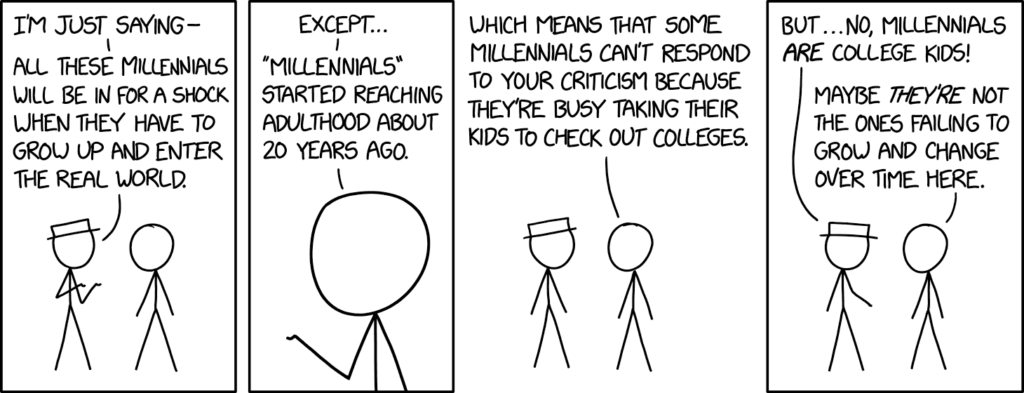We have heard a lot about Millennials (born 1981-1996) and all of the characteristics that go along with this group. However, most students entering college these days are considered Generation Z (Gen Z). Gen Z is loosely defined as anyone born between 1996 and 2015, “…this group makes up a quarter of the U.S. population and by 2020 will account for 40% of all consumers,” (Finch, 2015, np). Gen Z are currently between 4-24 years old (nearly 74 million in U.S.) and it’s safe to say will make up a majority of students in your future classrooms.
This cohort has grown up post 9/11 and in a world of terrorism, recession, racial unrest, corporate scandals and financial insecurity. They have never known a world without access to internet technology and have grown up with iPads and iPhones in their hands. They have the background knowledge to be experienced with digital literacy, but likely do not practice caution in their digital media use. Even though Gen Z spends a lot of time on social media, they seem to be pretty good at deciphering true from false information in record time. Fast Company suggests “Generation Z spends a lot of time on social media… they can sniff out canned or insincere messages in seconds”. Your Gen Z students expect honesty and straightforward responses, and are often determined to gain these responses, even if they aren’t forthcoming.
Characteristics of Gen Z Learners
- Often children of Generation X but may have parents who are Millennials
- Multitaskers
- Concerned with money and job security
- Usually independent
- Tend to be loyal, compassionate and thoughtful
- Responsible and determined
- Value education
- Future focused
- Active volunteers
- Prefer communication through Snap Chat & Instagram instead of email and traditional social media platforms such as Facebook
- Communicate with images (e.g. emojis)
- Use the internet to gain information for school and interests
- Have less face-to-face contact because of smartphones
- Use social media daily to maintain relationships
- More stressed and depressed than previous generations
Supplemental resources:
Using the characteristics of Gen Z and the supplemental resources, create a learning activity that you believe would engage Gen Z students. Prepare to share this activity with other class members. Do they believe this activity would be helpful? What suggestions might they have to improve the activity you have outlined?
Contributors and Attributions
CC licensed content, Original
- Foundations of Education. Authored by: SUNY Oneonta Education Department. License: CC BY: Attribution
CC licensed content, Shared previously



